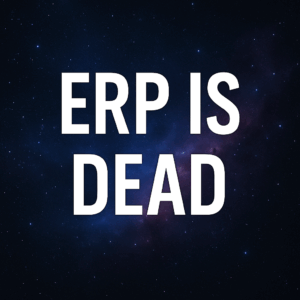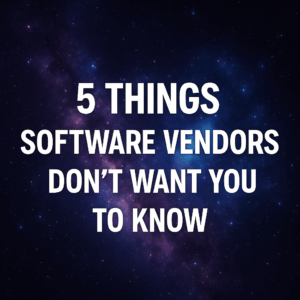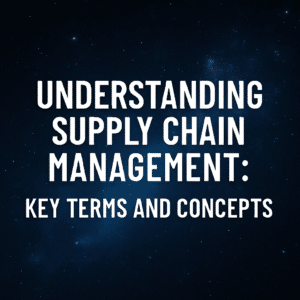As an expert witness, a common theme that permeates the Business Intelligence (BI) space is a lack of understanding of the terms and procedures that are relevant to a successful transformation. One such misunderstanding is the cloud and the ways in which it differs from the traditional method of storing data.
A question that often arises is what makes the two different and why the switch is needed, to which these answers are varied and can become quite extensive. The short answer to why the cloud is needed is that it is the direction that the world is headed in and businesses run the risk of being left behind if conformity does not happen with the wave of change/early adapters.
Business intelligence is a set of procedures that organizations use to collect, integrate, analyze, and present data to support decision-making and strategic planning. The term is broad, and often encompasses areas such as data mining, process analysis, performance bench-marking, and descriptive analytics. This is achieved by parsing all the data generated by a business and presenting digestible reports, performance measures, and trends that later informs management decisions. In recent years, there has been a shift towards cloud-based BI platforms, which offers several advantages over traditional “on-premises” solutions. An on-premise solution is a type of software or IT infrastructure that is installed and run directly on a company’s own computers and servers, rather than being hosted by a third-party provider or “in the cloud”.
One of the main benefits of cloud-based BI is that it allows organizations to access and analyze data from anywhere, at any time, using any device. This is made possible by the use of web-based dashboards and reporting tools, which can be accessed via a web browser. This can be particularly useful for organizations with a distributed workforce, as it allows employees to access and analyze data from any location.
Another advantage of cloud-based BI is that it is typically more cost-effective than on-premises solutions. This is because cloud-based BI platforms are typically offered on a subscription basis, which means that organizations only pay for the resources they use. This can be particularly beneficial for small and medium-sized businesses, which may not have the budget or resources to invest in expensive on-premises BI infrastructure.
Cloud-based BI platforms are also typically easier to set up and maintain than on-premises solutions. This is because the cloud provider takes care of all the underlying infrastructure and maintenance, allowing organizations to focus on their core business activities. The shift towards cloud-based BI is driven by the increasing availability of cloud computing infrastructure, the need for organizations to access and analyze data from anywhere, and the cost and maintenance advantages of cloud-based solutions.
Table of Contents
ToggleMajor cloud service providers
There are several major cloud service providers that are currently dominating the market. These include:
- Amazon Web Services (AWS) – a comprehensive, widely used cloud computing platform that offers a range of services including computing, storage, and networking. It is the market leader in the cloud industry and is widely used by businesses of all sizes.
- Microsoft Azure – a cloud computing platform and infrastructure created by Microsoft for building, deploying, and managing applications and services through a global network of Microsoft-managed data centers. It offers a range of services including virtual machines, storage, and networking.
- Google Cloud Platform – a cloud computing platform and infrastructure created by Google for building, deploying, and managing applications and services. It offers a range of services including computing, storage, and networking.
Can I trust my data in the cloud?
Cloud computing can be a very secure and reliable way to store and manage data. Many cloud providers offer robust security measures to protect data from unauthorized access, such as encryption, secure servers, and multi-factor authentication.
However, it is important to keep in mind that like any technology, the cloud is not completely foolproof and there is always a risk of data breaches or other security incidents. Therefore, it’s important to carefully evaluate the security measures of a cloud provider and determine whether they meet the needs of your organization. It’s also a good idea to have a plan in place to handle any potential security incidents that may occur.
There are a few steps you can take to ensure the security of your data in the cloud:
- Choose a reputable cloud provider: Look for a provider that has a track record of security and has implemented strong security measures to protect your data.
- Use encryption: Encrypting your data can help protect it from unauthorized access.
- Use strong passwords and enable two-factor authentication: This can help prevent unauthorized access to your accounts.
- Use security best practices: Follow best practices for securing your data, such as using secure protocols when transferring data, and regularly updating your security measures.
Should companies get rid of legacy systems once and for all?
While the cloud can provide many benefits, it is not always the best option for every company or every system. It might be more effective to consider a hybrid approach, where some legacy systems are maintained and others are migrated to the cloud. This can help to ensure that the company can take advantage of the benefits of cloud computing while still being able to rely on the stability and familiarity of their legacy systems.
There are a few key considerations to keep in mind when deciding whether or not to migrate legacy systems to the cloud:
- Cost: Migrating legacy systems to the cloud can be expensive, especially if it requires significant reworking of the system to make it compatible with cloud infrastructure. It’s important to carefully consider the costs and benefits of migration before making a decision.
- Compatibility: Not all legacy systems are compatible with cloud infrastructure. It’s important to assess the compatibility of your legacy systems before deciding whether or not to migrate them to the cloud.
- Business needs: It’s important to consider the business needs of your company when deciding whether or not to migrate legacy systems to the cloud. If the legacy system is critical to the operation of the business and there are no suitable alternatives available in the cloud, it might not make sense to migrate it.
While the cloud can provide many benefits, it’s not always the best option for every company or every system. It’s important to carefully consider the costs and benefits of migration before making a decision about whether or not to migrate legacy systems to the cloud.
Future state of cloud computing
It is difficult to predict the exact future state of the cloud in tech, as it is constantly evolving and being shaped by a variety of factors such as advancements in technology, shifts in business needs and priorities, and changes in the competitive landscape. However, it is likely that the cloud will continue to play a central role in the tech industry and will continue to be an important tool for businesses, organizations, and individuals around the world.
One trend that is expected to continue is the increasing adoption of cloud services by organizations of all sizes. As businesses increasingly rely on digital technologies to operate and innovate, the ability to quickly and easily access scalable, flexible, and reliable cloud-based infrastructure and services will become increasingly important.
Another trend that is expected to shape the future of the cloud is the growing importance of edge computing. Edge computing involves bringing computing power and data storage closer to the devices and sensors that generate and collect data, rather than relying on centralized data centers. This can help to reduce latency and improve the performance of applications and services that require real-time processing or analysis of data.
Overall, the future of the cloud is likely to be characterized by continued innovation and evolution, as well as increasing integration with other emerging technologies such as artificial intelligence, machine learning, and the Internet of Things.

IIf you are looking to strategize an upcoming transformation or are looking at selecting an ERP system, we would love to give you some insights. Please contact me for more information eric.kimberling@thirdstage-consulting.com





